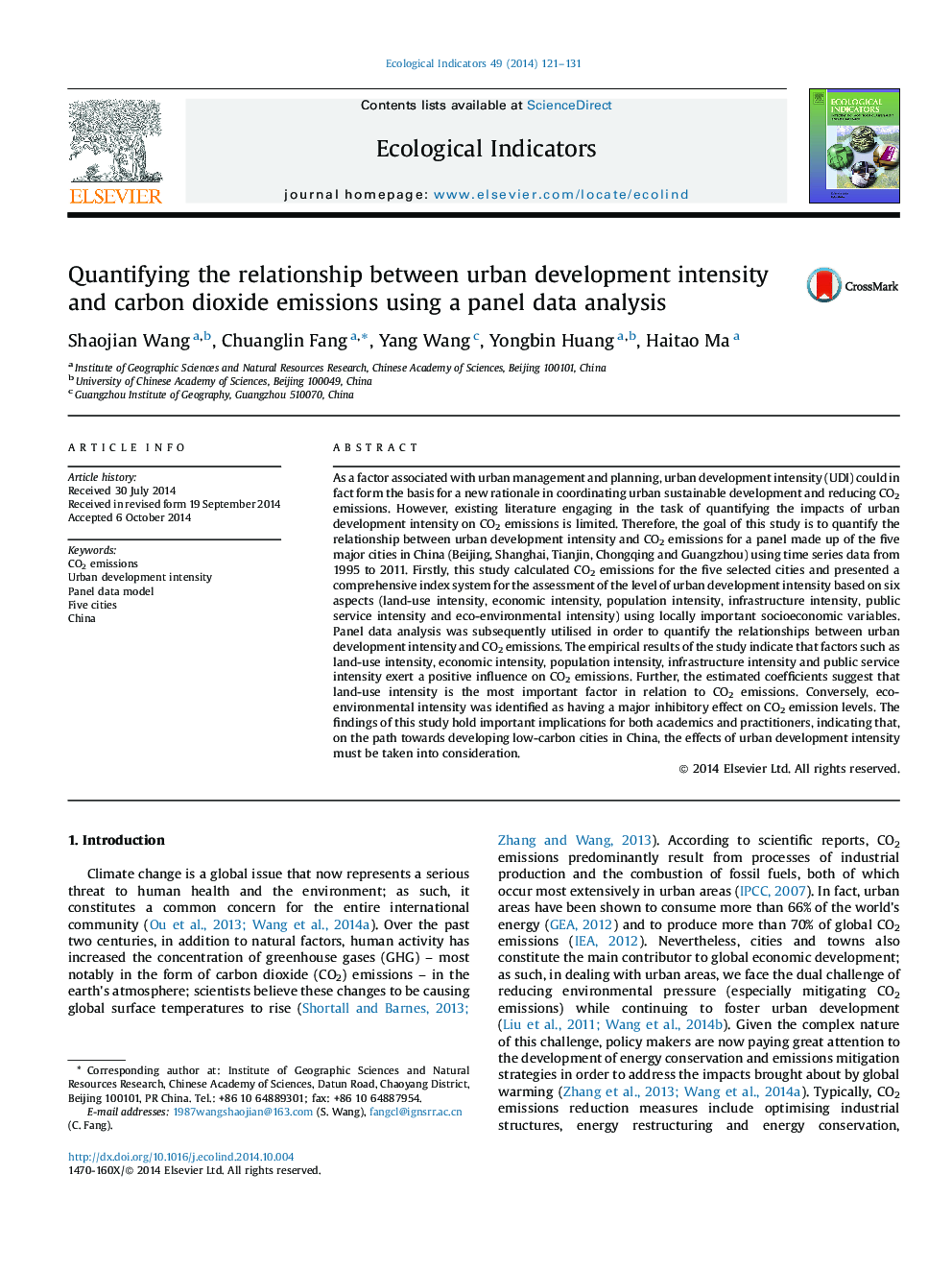| Article ID | Journal | Published Year | Pages | File Type |
|---|---|---|---|---|
| 6294797 | Ecological Indicators | 2015 | 11 Pages |
Abstract
As a factor associated with urban management and planning, urban development intensity (UDI) could in fact form the basis for a new rationale in coordinating urban sustainable development and reducing CO2 emissions. However, existing literature engaging in the task of quantifying the impacts of urban development intensity on CO2 emissions is limited. Therefore, the goal of this study is to quantify the relationship between urban development intensity and CO2 emissions for a panel made up of the five major cities in China (Beijing, Shanghai, Tianjin, Chongqing and Guangzhou) using time series data from 1995 to 2011. Firstly, this study calculated CO2 emissions for the five selected cities and presented a comprehensive index system for the assessment of the level of urban development intensity based on six aspects (land-use intensity, economic intensity, population intensity, infrastructure intensity, public service intensity and eco-environmental intensity) using locally important socioeconomic variables. Panel data analysis was subsequently utilised in order to quantify the relationships between urban development intensity and CO2 emissions. The empirical results of the study indicate that factors such as land-use intensity, economic intensity, population intensity, infrastructure intensity and public service intensity exert a positive influence on CO2 emissions. Further, the estimated coefficients suggest that land-use intensity is the most important factor in relation to CO2 emissions. Conversely, eco-environmental intensity was identified as having a major inhibitory effect on CO2 emission levels. The findings of this study hold important implications for both academics and practitioners, indicating that, on the path towards developing low-carbon cities in China, the effects of urban development intensity must be taken into consideration.
Keywords
Related Topics
Life Sciences
Agricultural and Biological Sciences
Ecology, Evolution, Behavior and Systematics
Authors
Shaojian Wang, Chuanglin Fang, Yang Wang, Yongbin Huang, Haitao Ma,
